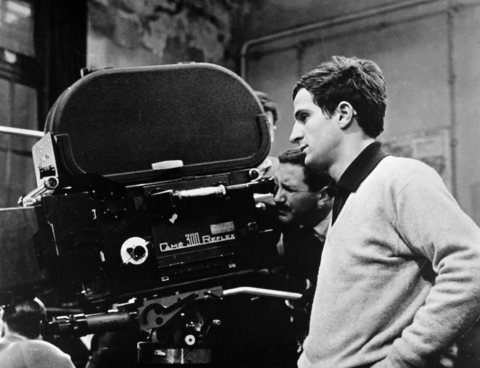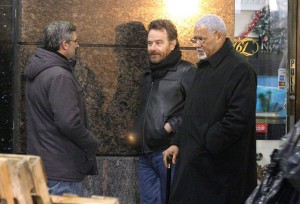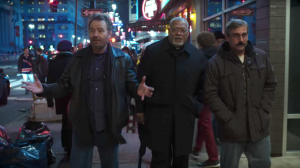From Cineaste, Spring 1993. I must say that I continue to be stupefied that a very respected academic French film critic reviewed this book favorably in Sight and Sound. But I’ve come to value Truffaut far more as a critic than I did in 1993, so I’m delighted that his writing for Arts was recently and belatedly collected in France. My favorite of all his pieces — an early piece about Hitchcock called “Skeleton Keys”– has yet to be collected in either French or English, although Film Culture and the short-lived Cahiers du Cinema in English both ran an English translation back in the 1960s.– J.R.

The historical amnesia currently infecting much of film scholarship, in academic and mainstream publishing alike, is so pervasive that it might be said to affect our sense of the present as well as the past. In theory, then, the most valuable thing about this annotated collection of early film criticism by François Truffaut would be less what it has to tell us about individual films than what it has to impart about film criticism itself in Paris during the Fifties. In practice, however, it proves to be highly problematical on both counts. While I would find a first volume in English of the criticism of Serge Daney, Jean-André Fieschi, Luc Moullet, Claude Ollier, or several other French critics immensely more valuable than a second Truffaut collection (after The Films of My Life, not to mention his collected letters and many other related books in English), additional samplings of his critical work are still certainly welcome. Read more
Commissioned by Iranian Film Magazine in early December, 2017. — J.R.


It might be argued that domestic melodramas are often based on contrivances. This is true of both Asghar Farhadi’s The Salesman (2016) and Mohammed Hamzei and Ehsan Biglari’s Azar (2017), two of the better Iranian domestic melodramas that I’ve seen in recent years. But the different ways in which these films handle their contrivances is instructive.

Farhadi — whom I tend to regard as the Elia Kazan of Iranian cinema, for better and for worse, typically generating more heat than light in his most popular works, as Kazan did in On the Waterfront and East of Eden — is more conventionally skillful with his Big Scenes than the team of Biglari (writer) and Hamzei (director) are with theirs. This is because Farhadi knows how to disguise his contrivances so that they don’t seem contrived at all, but dramatically inevitable, such as the sexual impropriety that spurs most of the action in The Salesman as well as the various dramatic confrontations that result from this.

By contrast, the Big Scenes in Azar tend to be awkwardly unconvincing (notably, the accidental death of Saber from a brief scuffle with his cousin Amir arising from a financial dispute), or played down (the uncle of Amir smashing windows in his nephew’s pizzeria with his fist), or else omitted entirely (the pivotal meeting between Amir and his uncle in prison). Read more
From the Chicago Reader (October 12, 2017). — J.R

Having no desire to revisit the adolescent, macho-military hijinks of The Last Detail (1973) or read the Darryl Ponicsan novel on which it was based, I had some forebodings about this screen adaptation of Ponicsan’s 2005 sequel, even though the movie was cowritten and directed by the smart and resourceful Richard Linklater. Fortunately the movie belongs mainly to its fine lead actors — Steve Carell, Bryan Cranston, and Laurence Fishburne — playing buddies from the Vietnam war who reunite for a funeral in 2003 after one of them loses a son in Iraq. The movie asks whether Americans unable to share a country or a conviction can at least agree to share a symbol (whether it’s the Stars and Stripes or an unmerited military funeral), and even Linklater and Ponicsan seem divided and uncertain on the question. This has its moments, but it ends, like its characters, in sentimental confusion. — Jonathan Rosenbaum
 Read more
Read more







